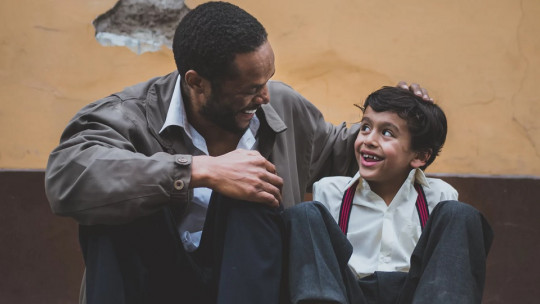
For many people, knowing how to deal with childhood tantrums is one of the key aspects of parenting. And although some boys and girls “behave well” in this regard and barely burst into crying and fighting when they don’t get what they want, the opposite cases are very common during the first years of life.
Here we will see some key strategies and ideas that serve to manage these tantrums in the best possible way
What are tantrums?
Tantrums are the set of behavioral patterns associated with frustration when it is expressed by young children This is reflected in an aggressive attitude that reveals the anger of the little boy or girl in a situation in which things do not go as they would like.
The frequency with which this type of behavior depends above all on the personality of each boy or girl, and it must be taken into account that it is normal in young minors: in itself it is not indicative of a psychological problem. However, if it is a constant in the child’s daily life, it is advisable to seek professional help by turning to a psychologist.
Causes
There is no single cause that explains the existence of childhood tantrums, but rather there are a multiplicity of factors that lead to their appearance. Among the most important, we must highlight the difficulties that the little ones have when trying to repress their impulses; Due to the phase of development in which your brain is, the limbic system, which is the set of structures of the Central Nervous System that gives rise to emotions, has an influence on the frontal lobe that this second can barely counteract. and modulate appropriately by putting abstract ideas such as values or long-term goals first.
Because of this, Boys and girls generally have a relatively short-term and egocentric mentality because they do not have the ability to contrast their desires and desires with incentives to put them in the background in favor of what is best for them in the long run.
What to do about children’s tantrums?
Follow these tips to know how to deal with the moments when your son or daughter has a tantrum.
1. Don’t antagonize
Even if the boy or girl has adopted an openly hostile attitude, It is important not to do the same thing and create a shouting contest On the contrary, you have to adopt an attitude of serenity that contrasts with what you are doing, to little by little make that emotion spread to the minor.
2. If your movements expose you to danger, prevent yourself from getting hurt
If he kicks a lot or moves in a way that could lead to injury, it is important to restrain his limbs In addition, this firm and constant body contact can help him calm down sooner, due to exhaustion. Of course, if in his tantrum he was not making energetic movements of that type, do not do this, since in that context it can be interpreted as a form of attack or intimidation.
3. Speak only when he calms down
Until the tantrum has almost completely died down, do not engage in verbal dialogue. In that way will understand that until the moment he leaves that attitude, he will not be able to “negotiate” with you to access what you are looking for.
4. Be consistent
Show clearly what your attitude is towards his tantrum, do not make contradictory decisions through an inconsistent way of behaving If not, you will have no authority to make him calm down.
5. Create incentives for good behavior
Combine rewards for appropriate behavior with demonstrations that tantrums are an unnecessary waste of energy that will do you nothing For example, if you were thinking of giving him a treat but then he starts a tantrum, wait to give it to him, so that he doesn’t associate his action with that consequence.
Do you want to have psychological assistance when raising children?
If you have problems parenting a young son or daughter, I invite you to contact me. I am a psychologist specializing in the cognitive-behavioral intervention model and I have been helping people to better manage their emotions, their ways of dealing with personal relationships and their day-to-day habits for many years. You can count on my services in my office located in Madrid, or through online sessions by video call.








